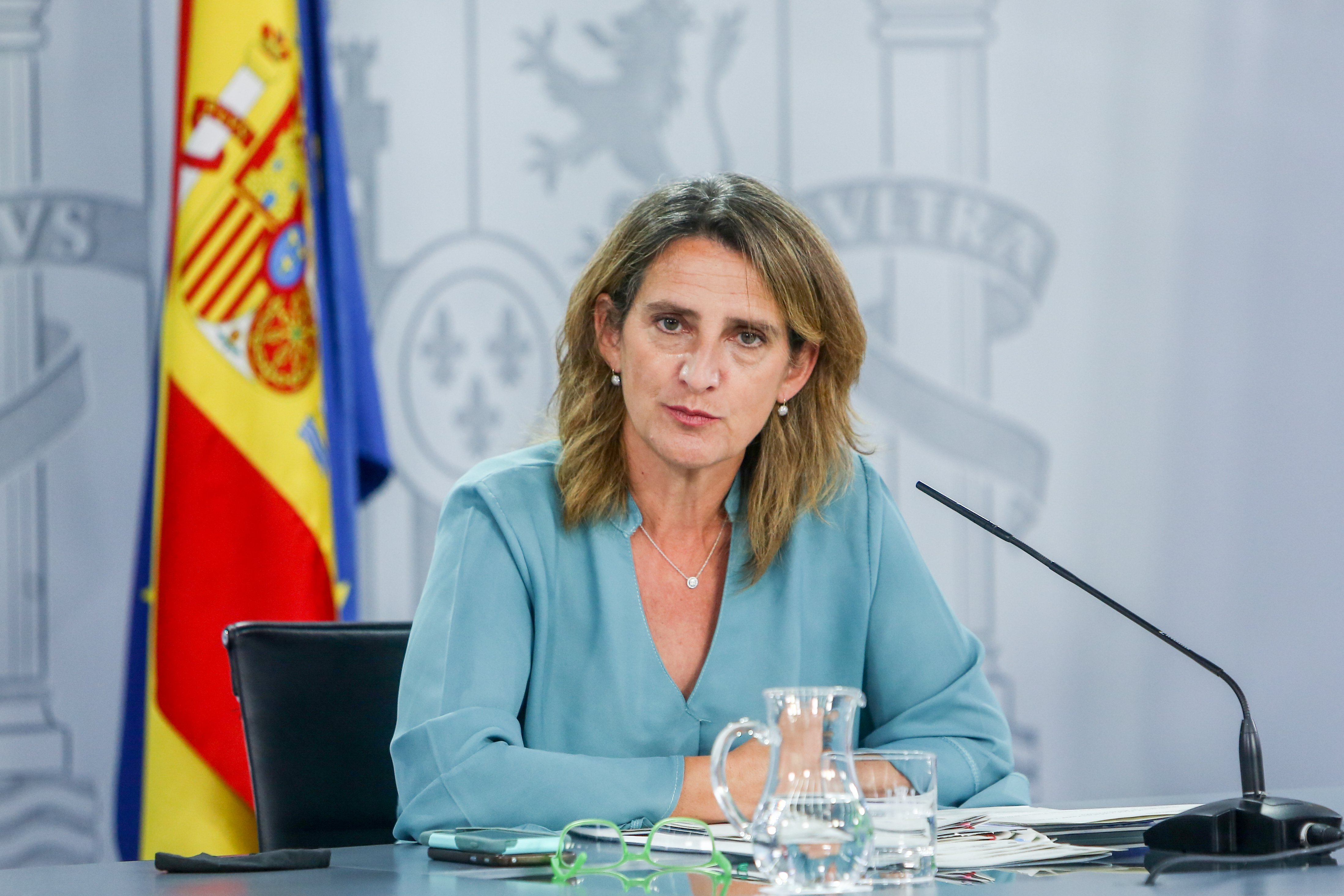Spain's third-ranked deputy prime minister, Teresa Ribera, has reacted to today's sobering report by the Intergovernmental Panel on Climate Change (IPCC), the UN scientific advisory body on the climate crisis, asserting that the report shows "that it is essential to accelerate the pace of transformation of the economic and development model" to "overcome the huge threat" of the climate crisis. Ribera, minister responsible for Spain's ecological transition, considers that "it is time to act and it is necessary to do so immediately."
In a video released by her ministry, Teresa Ribera states that what the report sets out is "clear, decisive and leaves no room for doubt" in relation to the fact that climate change "is accelerating". At the same time, she is clear that "action needs to be taken so that the risk remains at reasonable levels" and that this requires "very profound changes". On the corrective measures to be applied, Ribera rejected the idea that it was possible to consider them "with a 2050 horizon", but she went much further: "Nor can we consider that we have a horizon until 2030".
The report projects, among other highly concerning developments, an average planetary temperature rise that could exceed 1.5º Celsius unless “drastic reductions” in greenhouse gas emissions are made. That is, the target of a maximum of 1.5º of increase, set at the COP 21 climate conference in Paris just five years ago, is already very likely to be surpassed.
"Irreversible damage"
The report of the Intergovernmental Panel on Climate Change, released this Monday, warns that climate change is affecting all parts of the world: it is "widespread, rapid and intensifying." Moreover, there are many changes underway that are totally unavoidable and irreversible already: no matter what is done, there will be a rise in sea level between 28 and 55 centimeters by the end of the century. Climate change will also have a negative impact on glaciers, the Amazon, coral reefs, biodiversity and the foundations of human social and economic systems.
As well, some meteorological phenomena, such as heat waves, heavy rainfall, droughts and tropical cyclones, are also expected to be more frequent and intense.
Other political reactions
On behalf of Spanish government partner Unidas Podemos, Ione Belarra, the minister for social rights and Agenda 2030, affirms that it is "essential" to carry out an ecological transition that is "fair and urgent". At the same time, she called for "those who have polluted the most and continue to pollute to take active responsibility," as she wrote in a tweet.
The leader Ciudadanos, Inés Arrimadas, also referred to the report and defended the need to "invest more in science and innovation to reduce emissions without sacrificing progress and well-being". She urges making this investment given that "experts warn that many of the effects of climate change are already irreversible for centuries or millennia."
Más País MP Íñigo Errejón said on Twitter that "the science is clear: if we want a future on a planet that is not hell for the majority, we must radically change the way we live on it. Now".
Climate change law
Just three months ago, the Spanish parliament passed a climate change law which set a target of net zero carbon emissions for 2050. All parties voted in favour with the exception of two: Vox voted against, accusing the proposed law of being "sectarian" and having an "ideological agenda"; while the pro-independence CUP abstained, asserting that the proposals were pointless, because the law was so "lacking in ambition" that it was "already obsolete".
Main image: The third-ranked of Spain's three deputy PMs, Teresa Ribera, in an appearance at the Moncloa government palace. Europa Press.

